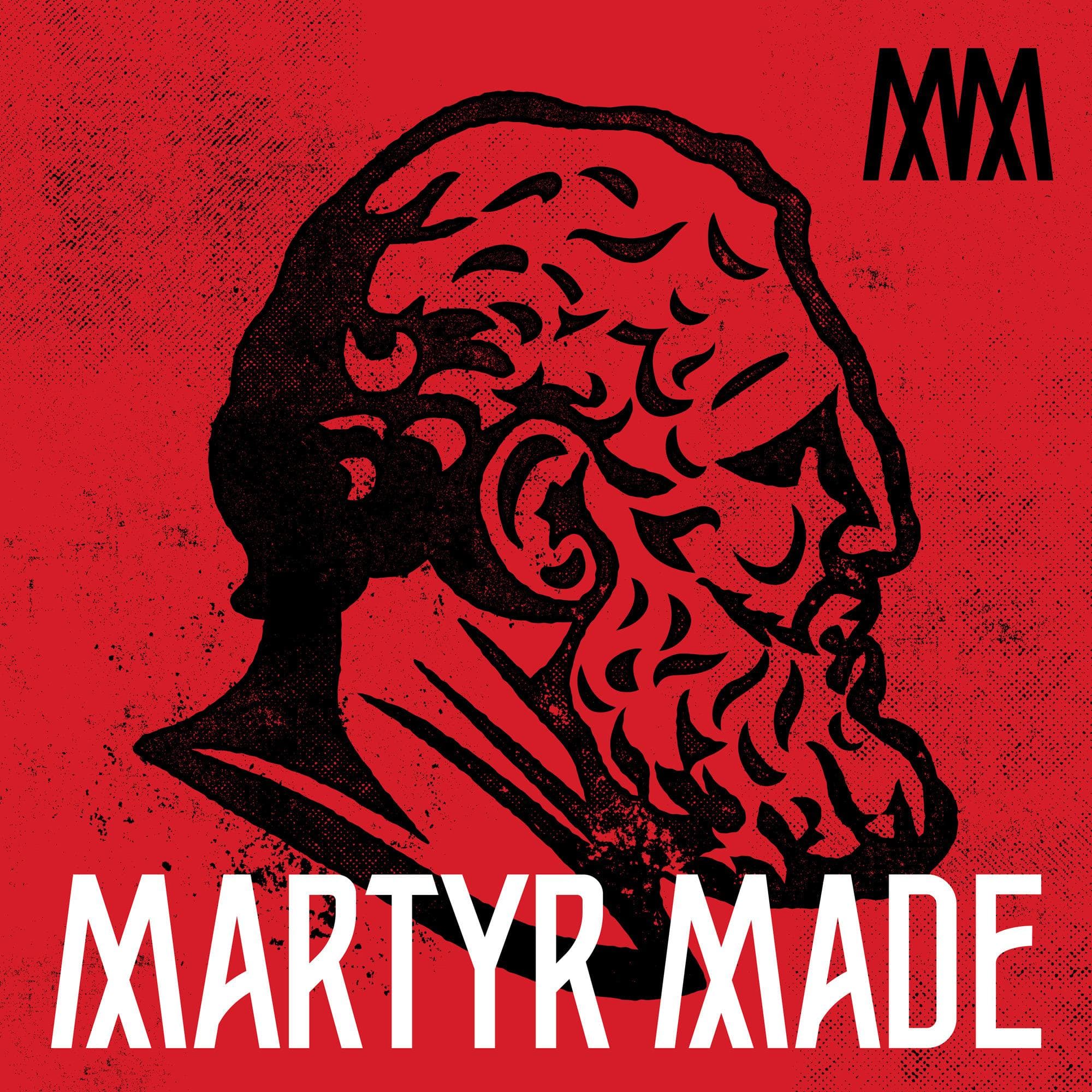
September 9, 2024 • 1hr 5min
My Response to the Mob
The Martyr Made Podcast

Key Takeaways
- The host, Darryl Cooper, sparked controversy with comments about Winston Churchill and World War II on Tucker Carlson's show
- Cooper argues that Britain's refusal to negotiate peace with Germany in 1940 unnecessarily prolonged and expanded the war
- He contends that even if Germany's peace offers weren't sincere, the Allies had an obligation to try to avoid the worst outcome
- Cooper emphasizes that Germany's atrocities in Eastern Europe were enabled by the cover of a world war
- He argues that the Holocaust and other Nazi atrocities should be understood in historical context, not as events without precedent or cause
- Cooper plans to do a future podcast series examining World War II from the German perspective
- He reads several powerful firsthand accounts of Holocaust atrocities to convey the horror and lasting impact
Introduction
In this episode, podcast host Darryl Cooper responds to the controversy sparked by his recent appearance on Tucker Carlson's show, where he made provocative comments about Winston Churchill and World War II. Cooper explains and expands on his views, arguing that Britain's refusal to negotiate peace with Germany in 1940 unnecessarily prolonged and expanded the war. He contends that even if Germany's peace offers weren't sincere, the Allies had an obligation to try to avoid the worst possible outcome.
Cooper also discusses how he plans to handle the topic of the Holocaust in an upcoming podcast series on World War II. He reads several powerful firsthand accounts of Holocaust atrocities to convey the horror and lasting impact, while arguing that these events need to be understood in proper historical context.
Topics Discussed
Responding to Controversy (0:02)
- Cooper's comments on Tucker Carlson's show about Winston Churchill being a "villain" of World War II sparked widespread criticism
- He was accused of being a Holocaust denier and anti-Semite, though he says the Holocaust was never discussed
- Cooper argues his views are not new and have been expressed by British historians like Alan Clark and A.J.P. Taylor
- He stands by his core argument that Britain's refusal to negotiate peace in 1940 unnecessarily prolonged and expanded the war
Britain's War Strategy (22:59)
- Cooper contends that after the fall of France in 1940, Britain had no capability to change the outcome of the war on its own
- Yet Britain refused to entertain German peace offers, even when made at the height of Hitler's power
- He argues Britain's only hope was to draw the US or USSR into a global conflict that would kill millions
- Cooper says this strategy made no sense to much of the German leadership and intensified Hitler's paranoia
German Atrocities in the East (31:00)
- Cooper clarifies he is not absolving Germany of atrocities committed in Eastern Europe
- He argues that even the most generous interpretation of Germany's actions toward civilians is still murder
- Cooper contends Germany launched its invasion with no plan to feed or care for millions under its control
- He says the built-in anti-Semitism of the Nazi regime guaranteed Jews would be targeted
Discussing the Holocaust (38:24)
- Cooper explains his struggle with how to handle the topic of the Holocaust in his podcast
- He decided to put off a deeper historical examination for a future series
- Cooper reads several powerful firsthand accounts of Holocaust atrocities to convey the horror and lasting impact
- He argues these events need to be understood in proper historical context, not as something without precedent or cause
Firsthand Holocaust Accounts (42:26)
- Cooper reads a passage from Timothy Snyder's book "Bloodlands" describing mass killings at Babi Yar in 1941
- He plays an interview with Holocaust survivor Jacob Bresler, who lost his entire family
- Cooper reads diary entries from an unknown Jewish woman in the Tarnopol ghetto
- These accounts vividly convey the horror and lasting trauma of the Holocaust
The Holocaust as Cultural Symbol (1:02:59)
- Cooper argues the Holocaust has taken on almost religious significance in Western culture
- He says it's viewed as something without precedent or cause, and inquiring too deeply can draw suspicion
- Cooper contends this event occupies an enormous space in Jewish cultural identity and psychology
- He says even many of his Jewish friends struggle to understand how Zionists in 1940s Palestine would have processed news of the Holocaust
Conclusion
Darryl Cooper uses this episode to respond to controversy sparked by his recent comments about Winston Churchill and World War II. He stands by his core argument that Britain's refusal to negotiate peace in 1940 unnecessarily prolonged and expanded the war, while clarifying he is not absolving Germany of atrocities. Cooper reads several powerful firsthand accounts of Holocaust atrocities to convey the horror and lasting impact of these events. However, he contends the Holocaust needs to be understood in proper historical context, not as something without precedent or cause. Cooper plans to explore these topics further in an upcoming podcast series examining World War II from the German perspective.